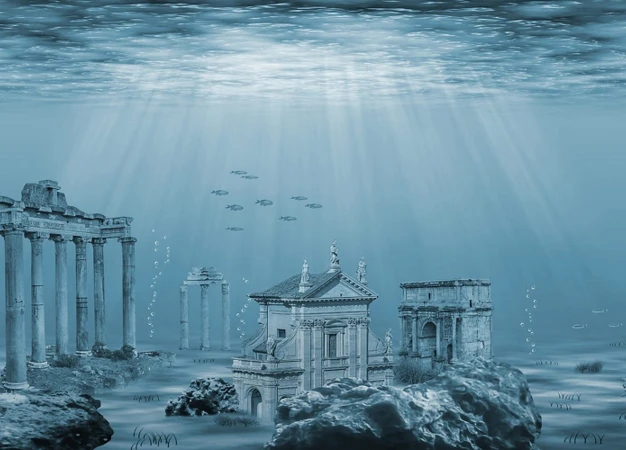Unlocking the Enigma: Rediscovering the Lost City of Atlantis
For millennia, the legend of the lost city of Atlantis has captivated the imaginations of scholars, explorers, and dreamers alike. Described by the philosopher Plato in his dialogues, Atlantis was said to be an advanced civilization that thrived thousands of years ago before vanishing into the depths of the sea. As we delve into the mystique surrounding this enigmatic city, we embark on a quest to explore the truth behind the myth. Join us on a journey filled with speculation, archaeological discoveries, and the enduring allure of Atlantis.
Contents
- The Myth of Atlantis
- Lost City: Myth or Reality?
- Rediscovering Atlantis
- Unraveling the Truth
- Conclusion
-
Frequently Asked Questions
- 1. Was Atlantis a real city?
- 2. Where was Atlantis located?
- 3. What caused the destruction of Atlantis?
- 4. Did any survivors of Atlantis escape?
- 5. Are there any underwater ruins that could be Atlantis?
- 6. Could Atlantis still exist today?
- 7. Did ancient civilizations have contact with Atlantis?
- 8. What can we learn from the legend of Atlantis?
- 9. Has any technology been discovered that could belong to Atlantis?
- 10. Do modern explorers still search for Atlantis?
- References
-
Frequently Asked Questions
- FAQs about Atlantis
- 1. Is Atlantis a real city?
- 2. Where was Atlantis located?
- 3. How did the myth of Atlantis originate?
- 4. What were the capabilities of the Atlanteans?
- 5. Are there any historical accounts of Atlantis?
- 6. Is there any solid archaeological evidence of Atlantis?
- 7. What are some theories about the fate of Atlantis?
- 8. Have there been any recent exploration efforts to find Atlantis?
- 9. What role does technology play in the search for Atlantis?
- 10. Why is the legend of Atlantis still captivating today?
- References
- Read More
The Myth of Atlantis
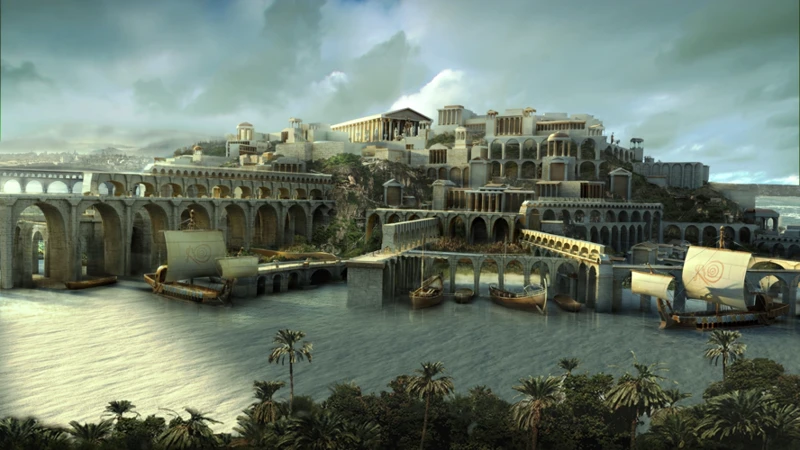
The myth of Atlantis is one of the most enduring legends in human history, shrouded in mystery and intrigue. According to ancient texts, Atlantis was a prosperous island located beyond the “Pillars of Hercules,” believed to be the Strait of Gibraltar. It was said to possess advanced technology, a powerful military, and a society that prized wisdom and virtue. Yet, despite its grandeur, Atlantis met a catastrophic fate, sinking into the ocean in a single day and night of misfortune. Plato’s accounts of Atlantis in his dialogues, “Timaeus” and “Critias,” have sparked countless debates about its existence.1
Plato’s writings, dating back to 360 BCE, provide the primary source of information about Atlantis. He claimed that his accounts of the lost city were based on earlier Athenian records and the teachings of his ancestor, Solon. Solon, in turn, had allegedly learned about Atlantis from Egyptian priests during his visit to Egypt in the 6th century BCE. These historical accounts, passed down through generations, added to the allure of Atlantis and fueled further speculation about its authenticity.2
The tale of Atlantis has also found echoes in other ancient civilizations. The ancient historian Herodotus mentioned a similar story about a great island civilization beyond the Pillars of Hercules. Many cultures, including the Maya and the Aztecs, possessed myths and legends that bear striking resemblances to Plato’s description of Atlantis. These consistent references from diverse cultures have added to the mystery and perpetuated the belief that Atlantis was more than just a figment of imagination.3
As we strive to separate fact from fiction, the allure of Atlantis continues to endure, beckoning us to uncover the truth behind this mythical utopia. Join us on this journey as we delve deeper into speculations, archaeological evidence, and the ongoing quest to rediscover the lost city of Atlantis.
Overview
The legend of Atlantis has captured the imagination of people around the world for centuries. This ancient city, believed to have existed beyond the Pillars of Hercules, is renowned for its advanced civilization and mysterious disappearance. Described by Plato in his dialogues, Atlantis was said to be a utopian society with magnificent architecture, advanced technology, and a sophisticated governmental system. The story goes that Atlantis faced divine punishment, sinking into the depths of the sea in a catastrophic event. Despite its mythical status, the allure of Atlantis continues to fascinate researchers, historians, and enthusiasts who seek to unravel the truth behind this enigmatic tale. Through various historical accounts, cultural references, and archaeological investigations, we aim to delve into the mystery and explore the possibility of Atlantis being more than a mere legend. Join us as we embark on a journey of discovery and unravel the secrets of this lost city.
Historical Accounts
The historical accounts surrounding Atlantis provide a glimpse into the origins of this legendary city. Plato’s dialogues, particularly the “Timaeus” and “Critias,” present detailed descriptions of Atlantis, its geography, and its society. According to Plato, Atlantis was established by the god Poseidon and was ruled by ten kings descended from Poseidon’s son Atlas. The city was renowned for its exceptional architecture and engineering, which included magnificent temples, palaces, and canals.
Plato’s accounts were based on earlier Athenian records and the teachings of his ancestor, Solon. Solon, a prominent Athenian lawmaker and poet in the 6th century BCE, learned about Atlantis during his visit to Egypt. There, Egyptian priests told Solon about a powerful and technologically advanced civilization that existed thousands of years before his time. This exchange between Solon and the priests formed the basis for Plato’s narrative.
The veracity of these historical accounts remains a subject of debate. Critics argue that Plato’s description of Atlantis was a fictional story designed to convey philosophical and moral lessons. They believe Atlantis was a symbol rather than an actual place. However, others argue that Plato’s inclusion of precise details about Atlantis, such as its location, size, and cultural aspects, suggests that he intended for it to be taken as a historical account.
Additional ancient historians and writers made reference to an island or civilization that shared similarities with Atlantis. The ancient historian Herodotus, often considered the “Father of History,” mentioned a story he heard about a great island civilization beyond the Pillars of Hercules. Records from ancient Mayan and Aztec civilizations also describe a lost paradise with advanced knowledge and a sudden cataclysmic disappearance.
The historical accounts of Atlantis, intertwined with the teachings of Solon and other ancient references, continue to fuel curiosity and research. As we explore further, we aim to uncover the truth behind this mysterious city and its place in history.
Lost City: Myth or Reality?
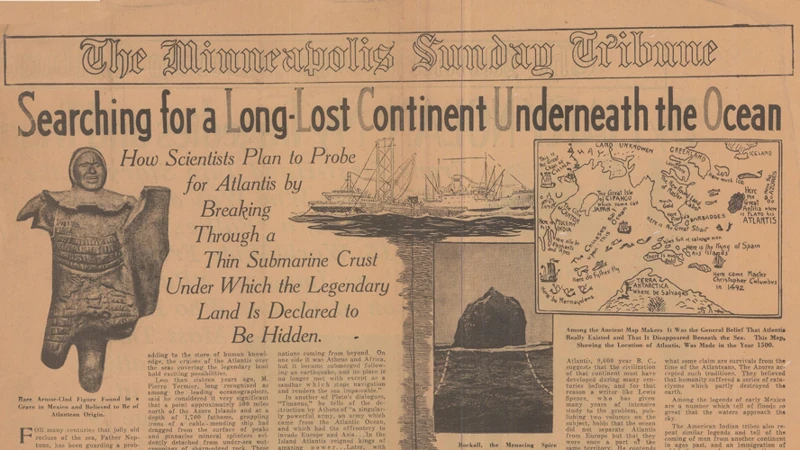
The debate surrounding the existence of the lost city of Atlantis has been a topic of fascination for centuries. Numerous theories and speculations have emerged, each offering a unique perspective on the reality of Atlantis. Some believe that Atlantis was a purely fictional creation by Plato, a philosophical allegory meant to convey moral and political lessons rather than a historical account. Others argue that Atlantis was a real place, arguing that Plato’s detailed descriptions suggest he was recounting actual events.
One theory proposes that Atlantis might have been located in the Mediterranean Sea, pointing to the Santorini caldera as a possible remnant of the sunken city. The eruption of the Thera volcano around 1600 BCE is thought to have caused a massive earthquake and tsunami, leading some to believe that this catastrophe could be connected to the demise of Atlantis.
Another theory suggests that Atlantis might have been located in a different part of the world altogether. Some researchers speculate that the Caribbean, the Canary Islands, or even Antarctica could be the remnants of Atlantis. These theories are often based on geological formations, ancient maps, and alleged cultural similarities between these regions and Plato’s description of Atlantis.
While no concrete evidence has been found to definitively prove the existence of Atlantis, there have been several intriguing archaeological discoveries that have added fuel to the debate. For instance, the ancient site of Akrotiri in Santorini, buried under volcanic ash after the Thera eruption, bears striking similarities to Plato’s description of Atlantis. The advanced architectural design and advanced infrastructure uncovered at Akrotiri hint at a highly developed civilization that existed in the region.
Further, discoveries in the sunken city of Heraklion, off the coast of Egypt, have also sparked speculation about its connection to Atlantis. The ruins, submerged in the Mediterranean Sea, revealed remnants of a city with megalithic structures that some suggest could be linked to the lost city.
Another approach to unraveling the Atlantis mystery lies in analyzing geographical clues. Plato mentioned that Atlantis was located beyond the “Pillars of Hercules,” leading many to believe it was situated beyond the Strait of Gibraltar. Some researchers propose that the Azores, a group of islands in the Atlantic Ocean, could be the remnants of Atlantis based on geological formations and ancient maps.
Additionally, the existence of seafaring civilizations such as the Minoans and Phoenicians supports the idea that ancient civilizations had the capability to explore and settle distant lands, including an island as significant as Atlantis.
While these speculations, archaeological findings, and geographical clues provide tantalizing hints, the question of whether Atlantis was a myth or a lost reality remains unanswered. The search for Atlantis continues, drawing explorers, scientists, and enthusiasts into the depths of history and the vastness of the world’s oceans.
Speculations and Theories
The mystery surrounding Atlantis has given rise to numerous speculations and theories attempting to unravel its enigma. One prevalent theory suggests that Atlantis was a real place that met its demise due to a natural catastrophe, such as a volcanic eruption or an earthquake. Proponents of this theory argue that Plato’s detailed descriptions of the city’s layout and advanced infrastructure indicate a level of historical accuracy. However, skeptics question the validity of these claims, as no concrete evidence has been found to support this theory.
Another line of speculation posits that Atlantis was not an actual physical city but a metaphorical representation. According to this interpretation, Atlantis symbolizes the ideal civilization or a spiritual realm of enlightenment. This theory suggests that Plato used Atlantis as a way to convey philosophical concepts and moral teachings. While this allegorical interpretation adds another layer of complexity to the mystery, it leaves the question of Atlantis’s physical existence unanswered.
Some theories propose that Atlantis was not a standalone civilization but part of a larger lost civilization that spanned across different parts of the world. These theories speculate that advanced ancient civilizations, such as the Egyptians, Mayans, or even extraterrestrial beings, had connections to Atlantis. The shared architectural and cultural similarities found in different corners of the globe support these hypotheses. However, conclusive evidence linking Atlantis to these ancient civilizations remains elusive.
The debate surrounding Atlantis’s true nature and existence continues to fascinate researchers and enthusiasts alike. As new discoveries are made and advances in technology allow for deeper exploration, it is hoped that one day the veil of skepticism will be lifted, and Atlantis’s secrets will be revealed. Until then, the speculations and theories surrounding this mythical city persist, fueling our imagination and reminding us of the enduring allure of Atlantis.
Archaeological Evidence
While Atlantis remains an enigma, some researchers and archaeologists have dedicated their lives to unraveling its mystery. However, the lack of concrete evidence has made the search for Atlantis a challenging endeavor. Despite this, a few intriguing archaeological findings have sparked intrigue and speculation.
One such discovery is the ruins of the ancient city of Akrotiri on the Greek island of Santorini. Dating back over 3,500 years, the preserved remains of Akrotiri share similarities with Plato’s descriptions of Atlantis. The well-preserved buildings, advanced plumbing systems, and sophisticated artwork suggest a highly advanced society. Some theorists believe that Akrotiri could be a remnant of the lost city, while others argue that it may have served as an inspiration for Plato’s narrative.
Additionally, underwater explorations have revealed submerged structures and formations that some experts claim could be remnants of Atlantis. One notable discovery is the Bimini Road, located off the coast of the Bahamas. This underwater formation consists of rectangular stones that resemble a paved road. Although the origins of the Bimini Road remain a subject of debate, some theorists propose that it could be evidence of an ancient civilization, potentially linked to Atlantis.
Geological evidence provides hints that support the idea of a catastrophic event leading to Atlantis’ demise. The theory of a massive volcanic eruption on Santorini, known as the Minoan eruption, has gained traction among researchers. The eruption, dating back to approximately 1,600 BCE, produced a massive tsunami that could have devastated any nearby civilization. Some believe that this cataclysmic event may have influenced Plato’s account of Atlantis’ destruction.
Despite these intriguing findings, skeptics argue that they do not provide conclusive proof of Atlantis’ existence. The absence of direct evidence, such as inscriptions or artifacts explicitly linking to the lost city, leaves room for interpretation and skepticism. Nevertheless, the pursuit of archaeological evidence fuels the ongoing quest to solve the mystery of Atlantis and brings us one step closer to unraveling its elusive truth.
Geographical Clues
Although the exact location of Atlantis remains a subject of fervent debate, there have been numerous geographical clues that researchers have used in their quest to locate the lost city. Some theories point to the possibility that Atlantis was situated in the Atlantic Ocean, as described by Plato. One such hypothesis suggests it may have been situated in the vicinity of the Azores Islands, an archipelago that lies west of Portugal. These islands, believed by some to be remnants of the lost civilization, display intriguing geological formations and underwater structures that hint at a submerged city.1
Other theories propose various locations around the world, including the Mediterranean Sea, the Caribbean, or even Antarctica. Some researchers argue that Atlantis may have been a metaphorical account rather than a physical place, illustrating larger philosophical concepts. They suggest that Plato’s description of Atlantis may have been influenced by his conception of an ideal society, rather than an actual historical site.
To further complicate matters, natural disasters over millennia, such as earthquakes and shifting coastlines, could have altered the landscape and submerged any remnants of Atlantis. This makes the search for concrete evidence even more challenging.
Despite the lack of conclusive evidence, the exploration of these geographical clues has inspired adventurers, archaeologists, and amateur enthusiasts to conduct extensive research and undertake expeditions spanning across oceans and continents. Their unwavering determination speaks to the enduring allure and fascination associated with the lost city of Atlantis. As technology continues to advance, and new discoveries emerge, there is hope that one day the truth about Atlantis may finally be revealed.
Rediscovering Atlantis

The quest to rediscover the lost city of Atlantis has captivated explorers and researchers throughout history. Countless expeditions, both on land and underwater, have been undertaken in the hope of unraveling the mystery. Over the years, explorers have scoured the Mediterranean Sea, the Atlantic Ocean, and even remote regions of the world in search of clues that may lead to the remnants of Atlantis. Despite the fervent efforts, no definitive evidence of the existence of the lost city has been found.
Advancements in technology have revolutionized the search for Atlantis, providing new tools and techniques to explore the depths of the ocean and analyze potential archaeological sites. Sonar imaging, underwater robotics, and satellite mapping have enabled researchers to extensively survey the ocean floor in areas where Atlantis is believed to have existed. These technological advancements have allowed for a more detailed examination of underwater topography and the potential traces of ancient structures. However, the vastness of the oceans and the challenges posed by underwater exploration continue to present obstacles in unveiling the truth behind Atlantis.
The search for Atlantis has not been without controversy and skepticism. There are those who dismiss the existence of Atlantis as merely a fictional tale created by Plato. Skeptics argue that Atlantis was a philosophical allegory rather than a historical account. Others believe that Plato may have drawn inspiration for Atlantis from real places or events but exaggerated its significance. The lack of concrete evidence further fuels skepticism and hinders progress in the search for Atlantis. Despite these controversies, the allure of Atlantis persists, driving researchers to push the boundaries of exploration in their quest to rediscover this legendary city.
Join us in the following section as we explore different theoretical explanations and lost civilization theories that provide possible insights into the existence of Atlantis.
Exploration Efforts
Numerous expeditions and exploration efforts have been undertaken in search of the elusive Atlantis throughout history. One of the most notable attempts was made by the renowned philosopher and explorer, Plato’s student, Socrates. However, his expedition, like many others, failed to locate the lost city, leaving Atlantis shrouded in even greater mystery. 1
In more recent times, various explorers and archaeologists have dedicated themselves to the quest for Atlantis. Notably, in the early 20th century, an American congressman named Ignatius Donnelly spent years researching and writing about Atlantis. Donnelly’s work popularized the search for Atlantis and inspired many subsequent expeditions.
One notable expedition took place in the late 1960s when a team of researchers, led by Jacques-Yves Cousteau, used their advanced diving equipment to explore the depths of the Atlantic Ocean. Although their efforts yielded no definitive evidence of Atlantis, they did bring to light intriguing underwater formations and archaeological remains that continue to fuel speculation.
In recent years, technological advancements have further enhanced exploration efforts. Underwater drones equipped with state-of-the-art sonar systems have been deployed to scan the ocean floor for potential underwater structures associated with Atlantis. Satellite imagery and remote sensing techniques have also been employed to analyze geological formations and identify potential submerged landmasses.
While these exploration efforts have provided valuable insights into the depths of the ocean, the search for Atlantis remains elusive. The absence of concrete evidence has led to skepticism and controversy surrounding the existence of the lost city. Despite the challenges, the allure of uncovering Atlantis continues to captivate the imagination of explorers and researchers around the world. It is a quest that remains ongoing, driven by the desire to unravel the enigmatic truth behind this legendary civilization.
Modern Technological Advancements
In recent years, advancements in technology have provided new avenues for the exploration and potential rediscovery of Atlantis. Underwater archaeology has made significant progress, allowing researchers to investigate submerged sites with greater precision and detail. Sonar technology, for instance, is used to create detailed maps of the seafloor, revealing any anomalies that may be indicative of ancient structures or formations. Remotely operated vehicles (ROVs) equipped with high-resolution cameras and robotic arms have enabled scientists to conduct detailed investigations without the need for human divers, reaching depths previously unreachable. Additionally, advances in satellite imagery have allowed researchers to analyze vast stretches of the ocean floor, searching for any signs of a potential lost city. These cutting-edge technologies continue to push the boundaries of exploration, offering hope that one day the fabled Atlantis may be found.
Controversies and Skepticism
The legend of Atlantis has not been without its fair share of skeptics and controversies. While many researchers and enthusiasts have devoted themselves to the search for Atlantis, there are those who question its existence entirely. One of the primary challenges is the lack of concrete evidence to support the existence of Atlantis. Critics argue that Plato’s accounts were simply allegorical or fictional stories meant to convey philosophical ideas and ideals rather than a historical account.
Additionally, the lack of consensus on the exact location of Atlantis adds to the skepticism. Over the years, numerous theories have emerged, placing Atlantis in different locations around the world, from the Mediterranean Sea to the Caribbean and even Antarctica. Without tangible evidence, it becomes challenging to validate any of these theories.
The absence of any archaeological discoveries that directly link to Atlantis raises doubts about its existence. While there have been intriguing findings in underwater exploration and excavations, such as the sunken city of Dwarka in India or the ancient city of Pavlopetri in Greece, none have been definitively tied to Atlantis.
The controversy surrounding the interpretation of ancient texts also fuels skepticism. Critics argue that Plato’s accounts may have been distorted or misunderstood over time, leading to misconceptions about Atlantis. Some even question the reliability of Solon’s encounter with the Egyptian priests and whether the story of Atlantis was passed down accurately.
Despite the skepticism and controversies, the allure of Atlantis persists, captivating the minds of both scholars and the general public. The possibility of rediscovering this legendary lost city continues to draw interest, spurring new exploration efforts and scientific research. As the search for Atlantis continues, it is essential to approach the topic with a critical eye, weighing the evidence and arguments on both sides before coming to any definitive conclusions.
Unraveling the Truth
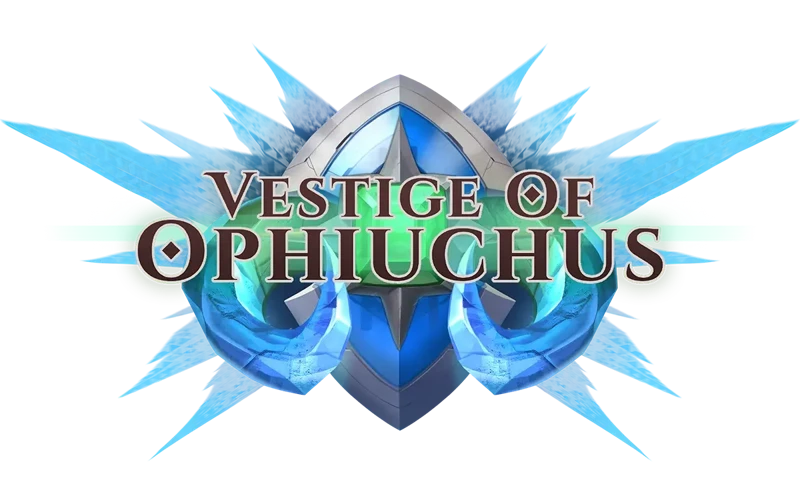
Unraveling the truth behind the myth of Atlantis continues to be a challenging endeavor, with multiple theories attempting to shed light on its possible existence. One theory suggests that Atlantis was simply a fictional creation by Plato, used as a metaphorical tale to convey his philosophical ideas. According to this viewpoint, Atlantis symbolizes an ideal society, representing Plato’s vision of a utopian civilization. Critics argue that since Atlantis cannot be found on any map, it must be purely a product of Plato’s imagination.
However, proponents of the historical Atlantis theory believe that Plato’s account was inspired by a real place that existed in ancient times. They argue that Atlantis could have been a thriving civilization somewhere in the Atlantic Ocean or even further afield, such as the Mediterranean or the Caribbean. These theorists propose that a cataclysmic event, such as a volcanic eruption or earthquake, could have caused the island to sink beneath the waves, thus explaining its disappearance from historical records.
Lost Civilization Theories
Another fascinating perspective on Atlantis is the idea that it was part of a larger network of advanced ancient civilizations. Some believe that Atlantis was a hub for global trade and cultural exchange, connecting diverse societies around the world. This theory suggests that Atlantis served as a cultural and technological beacon, influencing the development of various civilizations, including the Maya, Inca, and ancient Egyptians. Proponents of this hypothesis argue that the legacy of Atlantis can be found in the architectural marvels, advanced knowledge, and shared mythologies of these civilizations.
The Atlantis Connection
In recent years, researchers have attempted to establish connections between Atlantis and other ancient sites or civilizations. Some theorists propose that the ancient Minoan civilization on the island of Crete might have inspired the story of Atlantis. The Minoans were known for their advanced architecture, seafaring capabilities, and vibrant trade networks, making them a potential candidate for the legendary civilization. Others suggest that Atlantis could be related to the lost city of Tartessos in modern-day Spain, which was renowned for its wealth and prosperity.
Unraveling the truth behind Atlantis remains an ongoing puzzle, one that continues to captivate the imagination of both scholars and enthusiasts. While concrete evidence of its existence is yet to be discovered, the enduring fascination with Atlantis serves as a reminder of humanity’s eternal quest for knowledge, the lure of lost civilizations, and the allure of unraveling ancient mysteries.
Theoretical Explanations
The mystery surrounding the lost city of Atlantis has given rise to a plethora of theories attempting to explain its existence. One prevailing theory suggests that Atlantis was purely a figment of Plato’s imagination, a fictional creation to convey philosophical concepts. According to this view, Atlantis was intended as a allegory for the ideal society, representing Plato’s vision of a utopian civilization.
Another theory posits that Atlantis did indeed exist, but its location has been misinterpreted throughout history. Some researchers believe that Atlantis may have been located in the Mediterranean Sea, while others propose that it could have been situated in the Caribbean, off the coast of Spain, or even in Antarctica. The lack of definitive evidence and the wide range of proposed locations have contributed to the enduring mystery of Atlantis.
Additionally, there are theories that suggest Atlantis was a victim of natural catastrophes, such as earthquakes, volcanic eruptions, or tsunamis. These cataclysmic events may have caused the fabled city to sink beneath the sea. Supporting this hypothesis is the geological evidence of landmasses that have disappeared over time due to tectonic plate movements and underwater sedimentation.
Some theories delve into the possibility of extraterrestrial involvement in the rise and fall of Atlantis. Proponents of this idea suggest that advanced beings from other planets may have visited Earth in ancient times and shared their knowledge and technology with civilizations like Atlantis. The sudden disappearance of Atlantis would then be attributed to their departure or some catastrophic event triggered by their influence.
While these theories offer intriguing possibilities, the lack of tangible evidence leaves us with unanswered questions and fuels the ongoing debate surrounding the existence of Atlantis. Although scientific advancements continue to shed light on our world’s mysteries, the true nature of Atlantis remains elusive, leaving us to wonder if it was merely a fantastical creation or an actual lost civilization that still lies hidden beneath the depths of the ocean.
Lost Civilization Theories
The mystery of Atlantis has sparked numerous theories about lost civilizations throughout history. Some scholars and enthusiasts propose that Atlantis was just one of many advanced societies that existed in ancient times but eventually met their demise. These lost civilization theories suggest that there could have been other powerful cultures, perhaps even more advanced than Atlantis, which have yet to be discovered.
One popular theory is the existence of a lost continent called Lemuria or Mu. According to this theory, Lemuria was a landmass that connected Asia with North America and Oceania. Proponents of this theory argue that Lemuria was the home of an advanced civilization that flourished long before the rise of Atlantis. They believe that cataclysmic events, such as volcanic eruptions or tectonic shifts, led to the submergence of Lemuria, erasing all evidence of its existence.
Another compelling theory is the idea of a global civilization predating known history. This theory suggests that there was a highly advanced society that existed thousands of years ago, with knowledge and technology surpassing our current understanding. Proponents point to ancient structures like the pyramids of Egypt and the intricate stonework of Machu Picchu as evidence of this lost civilization. They argue that these monumental feats could not have been accomplished without advanced engineering and architectural knowledge.
Some theorists propose that Atlantis itself was not a standalone civilization but part of a larger network of advanced societies. They believe that these interconnected cultures spanned across different continents and shared knowledge, technology, and even trade routes. The existence of similar architectural styles, symbols, and mythologies in different parts of the world is often cited as evidence of this global civilization.
While these theories are intriguing, they remain largely speculative, lacking concrete evidence to support their claims. The search for Atlantis and other lost civilizations continues, driven by a desire to unveil the secrets of the past and shed light on the mysteries that still elude us. As researchers and explorers delve into the depths of history, perhaps one day we will uncover the truth behind these captivating lost civilization theories.
The Atlantis Connection
The quest for the lost city of Atlantis has led many researchers to explore possible connections between the myth and real civilizations throughout history. While Atlantis itself remains elusive, some theorists propose that it may have been inspired by or influenced actual ancient societies. One of the most intriguing theories suggests a connection between Atlantis and the Minoan civilization. The Minoans, who thrived on the island of Crete around 2600 to 1400 BCE, boasted sophisticated architecture, advanced marine technology, and a prosperous trade network. Their sudden collapse and disappearance have raised questions about a potential cataclysmic event that could align with the myth of Atlantis. Another theory proposes that Atlantis was a reflection of the ancient city of Tartessos, located in modern-day Spain. Tartessos was a wealthy and powerful civilization believed to have flourished around the same time as Atlantis. Some argue that Plato may have conflated the two cities in his writings. Other theories explore ties between Atlantis and ancient civilizations in the Americas, such as the Aztecs or the Maya, pointing to similarities in their mythology and architecture. The search for the Atlantis connection continues to captivate researchers, pushing the boundaries of our understanding of history and challenging us to unravel the tantalizing enigma surrounding the lost city.
Conclusion
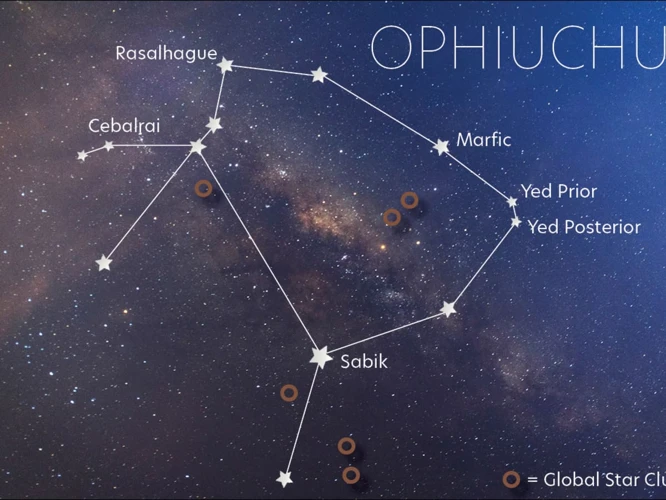
Unraveling the Truth
After an in-depth exploration of the myth, reality, and ongoing investigations, the mystery of Atlantis continues to elude us. The legend of Atlantis has captured our collective imagination and sparked endless debates and speculation. While some argue that Atlantis was merely a fictional creation of Plato, others believe there could be a grain of truth hidden within the myth. The absence of tangible evidence and the ambiguity of historical records have fueled skepticism and controversy surrounding the existence of Atlantis.
Theoretical Explanations
Numerous theories have emerged over the years attempting to explain the origins and nature of the Atlantis legend. Some propose that Atlantis was a cautionary tale invented by Plato to convey his philosophical ideas, while others suggest that it was a cultural memory of a real ancient civilization lost to time. The concept of a technologically advanced civilization preceding our own has fascinated scholars and has led to further speculation about the potential connection between Atlantis and other ancient mysteries.
Lost Civilization Theories
Many researchers believe that if Atlantis did exist, it would have been part of a broader lost civilization that thrived during a forgotten era. The idea of advanced ancient civilizations capable of feats surpassing our current capabilities has intrigued both historians and the public. From the pyramids of Egypt to the enigmatic ruins of South America, these mysterious sites continue to fuel the notion that there were once advanced civilizations whose existence remains hidden in the annals of history.
The Atlantis Connection
Even if Atlantis itself may have never existed, the enduring allure of the myth lies in its symbolism and the lessons it imparts. The story of Atlantis serves as a reminder of the fragility of human achievements and the impermanence of civilization. It is a timeless tale that compels us to reflect on the power of hubris, the consequences of our actions, and the ultimate fate that may await us all.
In conclusion, while the lost city of Atlantis remains an enigma that has fueled curiosity for centuries, its existence continues to elude definitive proof. Whether Atlantis was a fabrication of Plato’s imagination, a cultural memory of a lost civilization, or a metaphoric cautionary tale, the allure and mystery surrounding Atlantis will undoubtedly persist. As long as the quest for knowledge and exploration endures, the search for Atlantis will continue to captivate our imagination and keep the legend alive.
Frequently Asked Questions

1. Was Atlantis a real city?
The existence of Atlantis as a physical city remains unconfirmed. While the story of Atlantis originated from the writings of Plato, there is no concrete archaeological evidence to support its existence.
2. Where was Atlantis located?
According to Plato, Atlantis was situated beyond the “Pillars of Hercules,” believed to be in the area of the modern-day Strait of Gibraltar. However, the exact location of Atlantis, if it indeed existed, remains a hotly debated topic among scholars and researchers.
3. What caused the destruction of Atlantis?
According to Plato’s accounts, Atlantis was destroyed in a cataclysmic event, sinking into the sea in a single day and night. The cause of this destruction, however, remains unknown and subject to speculation.
4. Did any survivors of Atlantis escape?
There are no authenticated records or evidence to suggest that any survivors of Atlantis fled the city’s destruction. This aspect of the Atlantis legend remains purely speculative.
5. Are there any underwater ruins that could be Atlantis?
Over the years, various underwater formations and ruins have been proposed as potential candidates for Atlantis. However, none of these discoveries have been definitively confirmed as Atlantis, and the search for its remains continues.
6. Could Atlantis still exist today?
Given that the existence of Atlantis remains unproven, it is highly unlikely that the city still exists today. However, the enduring fascination with Atlantis keeps the possibility alive in the realm of imagination and exploration.
7. Did ancient civilizations have contact with Atlantis?
There is no historical evidence to support the notion that ancient civilizations had direct contact with Atlantis. The similarities between the Atlantis story and other cultural myths may be coincidental or influenced by shared themes and archetypal motifs.
8. What can we learn from the legend of Atlantis?
The legend of Atlantis serves as a cautionary tale about societal hubris, the consequences of arrogance, and the preciousness of knowledge and wisdom. It reminds us of the impermanence of civilizations and the importance of stewardship.
9. Has any technology been discovered that could belong to Atlantis?
There is no conclusive evidence to suggest that any technology discovered thus far can be definitively attributed to Atlantis. The hypothetical advancements and technologies described by Plato remain the stuff of legends and speculation.
10. Do modern explorers still search for Atlantis?
While Atlantis continues to hold intrigue, the search for its physical remains has diminished in recent years. However, the allure of Atlantis continues to inspire exploration and fuel the imagination of adventurous researchers.
References
Frequently Asked Questions

FAQs about Atlantis
Here are some frequently asked questions about the mythical lost city of Atlantis:
1. Is Atlantis a real city?
The existence of Atlantis has not been proven, and it remains a subject of debate among historians and archeologists.
2. Where was Atlantis located?
According to Plato’s accounts, Atlantis was located beyond the “Pillars of Hercules,” which are believed to be the Strait of Gibraltar.
3. How did the myth of Atlantis originate?
The myth of Atlantis can be traced back to the ancient Greek philosopher Plato, who mentioned it in his dialogues “Timaeus” and “Critias.”
4. What were the capabilities of the Atlanteans?
According to Plato, the Atlanteans possessed advanced technologies and were a highly advanced civilization.
5. Are there any historical accounts of Atlantis?
Aside from Plato’s writings, no other historical accounts of Atlantis exist, leading some to believe it is purely a fictional tale.
6. Is there any solid archaeological evidence of Atlantis?
No concrete archaeological evidence of Atlantis has been discovered so far, leaving its existence in question.
7. What are some theories about the fate of Atlantis?
There are various theories, ranging from the belief that Atlantis was destroyed by a natural disaster to the idea that it never existed at all.
8. Have there been any recent exploration efforts to find Atlantis?
Although there have been numerous attempts to find Atlantis, none have been successful in uncovering any definitive proof.
9. What role does technology play in the search for Atlantis?
Advancements in technology, such as sonar scanning and satellite imagery, have aided in the exploration of potential underwater sites.
10. Why is the legend of Atlantis still captivating today?
The enduring allure of Atlantis lies in its mystery and the possibility of a lost civilization with advanced knowledge and extraordinary capabilities.

